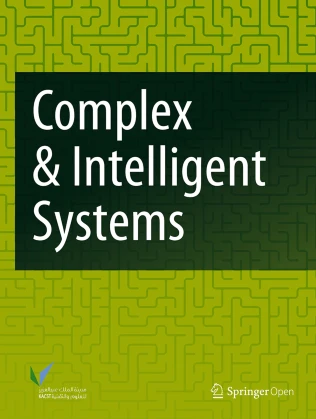Verticox+: vertically distributed Cox proportional hazards model with improved privacy guarantees.
IF 4.6
2区 计算机科学
Q1 COMPUTER SCIENCE, ARTIFICIAL INTELLIGENCE
引用次数: 0
Abstract
Federated learning allows us to run machine learning algorithms on decentralized data when data sharing is not permitted due to privacy concerns. Various models have been adapted to use in a federated setting. Among these models is Verticox, a federated implementation of Cox proportional hazards models, which can be used in a vertically partitioned setting. However, Verticox assumes that the survival outcome is known locally by all parties involved in the federated setting. Realistically speaking, this is not the case in most settings and thus would require the outcome to be shared. However, sharing the survival outcome would in many cases be a breach of privacy which federated learning aims to prevent. Our extension to Verticox, dubbed Verticox+, solves this problem by incorporating a privacy preserving 2-party scalar product protocol at different stages. This allows it to be used in scenarios where the survival outcome is not known at each party. In this article, we demonstrate that our algorithm achieves equivalent performance to the original Verticox implementation. We discuss the changes to the computational complexity and communication cost caused by our additions.Verticox+:垂直分布的Cox比例风险模型,改进了隐私保障。
联邦学习允许我们在由于隐私问题而不允许数据共享时在分散的数据上运行机器学习算法。已经调整了各种模型以在联邦设置中使用。其中一个模型是Verticox,它是Cox比例风险模型的联合实现,可用于垂直分区设置。然而,Verticox假设所有参与联邦环境的各方都知道当地的生存结果。现实地说,在大多数情况下,情况并非如此,因此需要分享结果。然而,在许多情况下,分享生存结果会侵犯隐私,这是联合学习旨在防止的。我们对Verticox的扩展,称为Verticox+,通过在不同阶段合并保护隐私的两方标量乘积协议来解决这个问题。这使得它可以在各方都不知道生存结果的情况下使用。在本文中,我们演示了我们的算法达到了与原始Verticox实现相当的性能。我们讨论了由于我们的添加而引起的计算复杂性和通信成本的变化。
本文章由计算机程序翻译,如有差异,请以英文原文为准。
求助全文
约1分钟内获得全文
求助全文
来源期刊

Complex & Intelligent Systems
COMPUTER SCIENCE, ARTIFICIAL INTELLIGENCE-
CiteScore
9.60
自引率
10.30%
发文量
297
期刊介绍:
Complex & Intelligent Systems aims to provide a forum for presenting and discussing novel approaches, tools and techniques meant for attaining a cross-fertilization between the broad fields of complex systems, computational simulation, and intelligent analytics and visualization. The transdisciplinary research that the journal focuses on will expand the boundaries of our understanding by investigating the principles and processes that underlie many of the most profound problems facing society today.
 求助内容:
求助内容: 应助结果提醒方式:
应助结果提醒方式:


